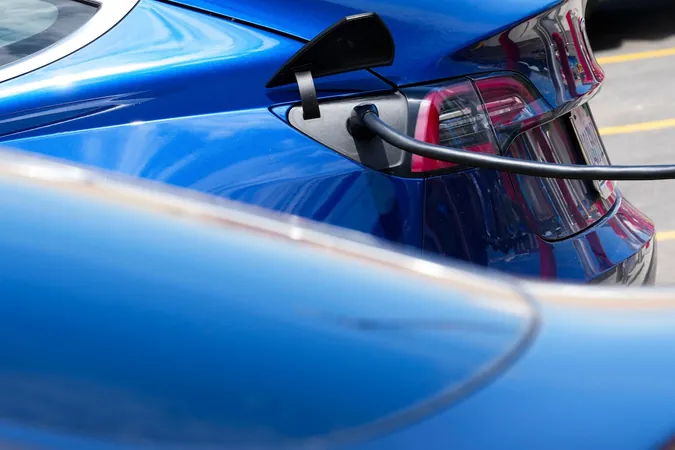
Electric Vehicle Sales Slump as Drivers Worry About Price and Range
2024-11-27
Author: Charlotte
A recent survey conducted by EY's Mobility Consumer Index has revealed a troubling trend: fewer drivers are planning to purchase electric vehicles (EVs) for their next car. This year, intentions to buy a fully electric, plug-in hybrid, or hybrid vehicle have dipped to 50%, down from 52% in 2023. This marks a significant shift from the steadily increasing interest observed in the past few years—rising from 35% in 2021 to 46% in 2022.
Jennifer Rogers, the automotive and transportation leader at EY Canada, noted that this sudden change indicates a potential plateau in the EV market. The study highlights that interest in fully electric vehicles has decreased to just 15%, down from 18% last year.
Respondents expressed several concerns driving this decline, most notably the high cost of EVs, limited driving range, expensive battery replacements, and insufficient charging infrastructure. "The lack of charging stations and the resulting range anxiety are significantly intertwined," Rogers remarked, underscoring the unease drivers feel about recharging their vehicles away from home.
To alleviate these fears, enhancing public charging facilities is crucial. Rogers emphasized that without resolving these concerns, it will be a tough sell for consumers considering the shift from traditional vehicles to EVs. This urgency is compounded by Canada's ambitious goal to ensure that all new light-duty vehicle sales are zero-emission by 2035. The federal government is implementing a phased approach to phase out new gas-powered vehicles, targeting a 20% cut by 2026 and ramping up to a complete ban by 2035.
The decrease in consumer interest poses a considerable challenge for meeting these targets. Current market conditions, including inflation and rising interest rates, further complicate the situation, contributing to the approximately $73,000 average price tag for electric vehicles in Canada, as reported by Canadian Black Book.
Compounding the issues, some automakers, including Ford, are delaying their electric vehicle production schedules as demand dwindles. The company's plans for manufacturing EVs at its Oakville, Ontario plant have been pushed back by two years.
Government rebates have proven critical for those considering EV purchases, with nearly 28% of Canadians identifying these incentives as a top factor in their decision-making process. However, Rogers indicated that these subsidies alone may not be enough to reignite interest, especially given the scarcity of affordable electric options.
Notably, those still considering an EV are driven by the high costs of gasoline, environmental concerns, and financial incentives. However, the transition from early adopters to a broader base of consumers may prove challenging. "The next group of buyers transitioning from combustion engines to electric vehicles will be harder to convince," Rogers said, highlighting that many potential buyers may be more budget-conscious or lack reliable access to home charging.
As the market shifts and the government pushes for greener alternatives, the future of electric vehicles in Canada remains in the balance. Will enhanced infrastructure and affordable models fuel a comeback, or will consumer trepidation stall the transition to electric vehicles for good? Only time will tell.









 Brasil (PT)
Brasil (PT)
 Canada (EN)
Canada (EN)
 Chile (ES)
Chile (ES)
 España (ES)
España (ES)
 France (FR)
France (FR)
 Hong Kong (EN)
Hong Kong (EN)
 Italia (IT)
Italia (IT)
 日本 (JA)
日本 (JA)
 Magyarország (HU)
Magyarország (HU)
 Norge (NO)
Norge (NO)
 Polska (PL)
Polska (PL)
 Schweiz (DE)
Schweiz (DE)
 Singapore (EN)
Singapore (EN)
 Sverige (SV)
Sverige (SV)
 Suomi (FI)
Suomi (FI)
 Türkiye (TR)
Türkiye (TR)